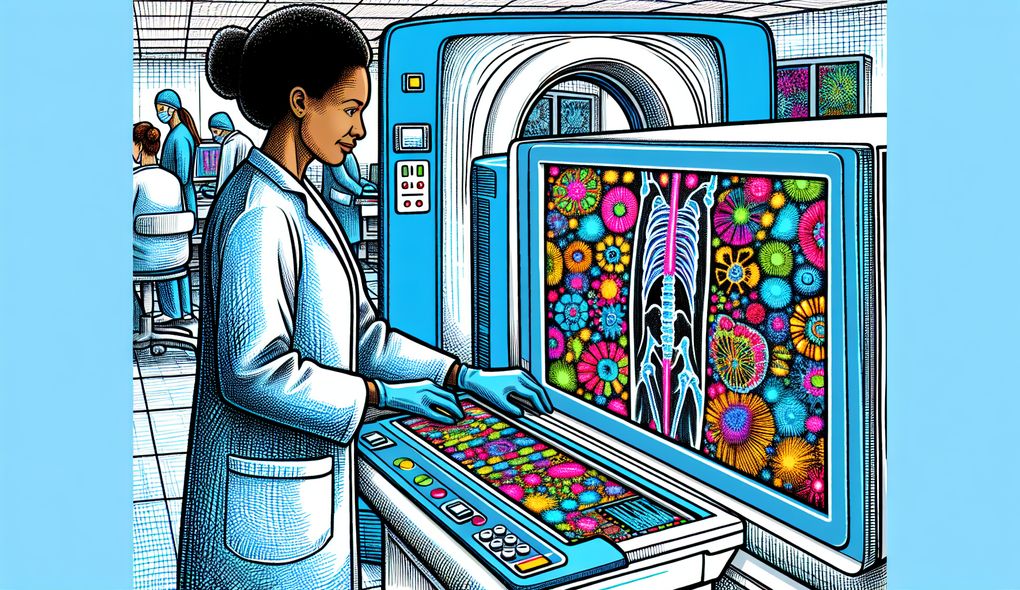How do you prioritize your tasks and manage your time effectively in a fast-paced diagnostic imaging department?
INTERMEDIATE LEVEL

Sample answer to the question:
In a fast-paced diagnostic imaging department, I prioritize my tasks by first assessing the urgency and importance of each task. I make a to-do list and organize it by deadlines, with the most critical tasks at the top. To manage my time effectively, I create a schedule and allocate specific time slots for each task. I also practice efficient time management techniques, such as setting timers and avoiding distractions. Additionally, I communicate with my team to ensure we are working together towards common goals and to coordinate tasks effectively.
Here is a more solid answer:
In a fast-paced diagnostic imaging department, I prioritize my tasks by first assessing the urgency, importance, and complexity of each task. I divide my workload into smaller, manageable tasks and set realistic deadlines for each. To manage my time effectively, I use time management tools and techniques such as using a calendar, setting reminders, and breaking down tasks into smaller steps. I also communicate with my colleagues and supervisor to align priorities and ensure efficient workflow. By collaborating with my team, we can share responsibilities and support each other in meeting deadlines and delivering high-quality results.
Why is this a more solid answer?
The solid answer provides more specific details on how tasks are prioritized based on urgency, importance, and complexity. It also expands on time management techniques and emphasizes the importance of communication and collaboration in a fast-paced environment. However, it could still benefit from providing specific examples or experiences related to task prioritization and time management.
An example of a exceptional answer:
In a fast-paced diagnostic imaging department, I prioritize my tasks by using a combination of urgency, importance, and impact on patient care as criteria. I have developed a system of categorizing tasks into three levels: critical, important, and routine. Critical tasks require immediate attention and may involve patient safety or urgent physician requests. Important tasks have a significant impact on patient care but can be completed within a reasonable timeframe. Routine tasks are essential but can be scheduled flexibly. To manage my time effectively, I utilize time-blocking techniques and set aside specific time slots for focused work. I also leverage technology tools such as project management software to track progress and deadlines. Collaboration is key in a fast-paced environment, so I actively seek input from colleagues, discuss workload distribution, and offer assistance whenever possible. By working as a team, we can optimize efficiency, reduce bottlenecks, and ensure the best possible care for our patients.
Why is this an exceptional answer?
The exceptional answer provides a comprehensive and detailed approach to task prioritization and time management in a fast-paced diagnostic imaging department. It demonstrates a strong understanding of the impact on patient care and the ability to categorize tasks accordingly. The use of time-blocking techniques and technology tools showcases efficient time management practices. Additionally, the emphasis on collaboration and teamwork highlights the candidate's ability to work effectively in a healthcare team. Overall, the answer demonstrates a high level of competency and provides a clear understanding of how the candidate would handle the demands of the role.
How to prepare for this question:
- Familiarize yourself with different task prioritization methods and time management techniques commonly used in healthcare settings.
- Reflect on past experiences where you had to manage competing priorities and demonstrate effective time management.
- Research and familiarize yourself with any specific task management or project management software used in the diagnostic imaging department.
- Prepare examples that showcase your ability to collaborate and communicate effectively in a fast-paced healthcare environment.
What are interviewers evaluating with this question?
- Prioritization
- Time management
- Collaboration

